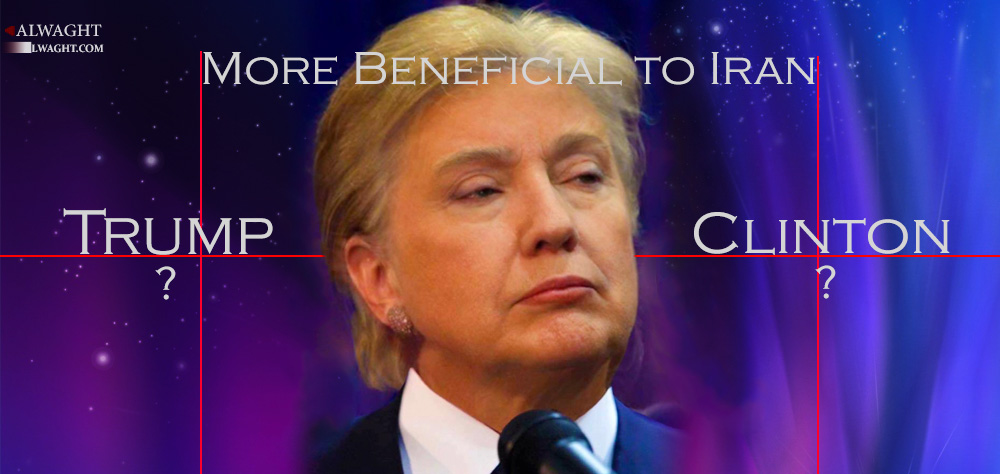Alwaght- The US election campaign between Donald Trump and Hillary Clinton as the main candidates for the Republican and Democratic parties, is intensely continuing. Several issues are in dispute and centered in sides’ debates, from concealed Carry, the freedom of Muslim-American citizens, and generally the limitation of foreign citizens entering US, to cooperation or confrontation with US’ partners in the world. The stances of these candidates in most cases is completely opposite from each other, although in election campaign the maximum gap in the positions of the candidates is pretty normal and common, but Trump’s unconventional stances on many issues is rare and even unprecedented, which has caused him to face opposition. While the members of the Democratic Party have almost unanimously agreed on their candidate, the Republican candidate has opponents even within his own party who consider him unqualified and inexperienced for the presidency of the United States.
Even though Clinton is leading in the polls, it should be noted that there is no definite prediction in politics, and at any point something could happen and change the situation for the candidates and at last bring in results contrary to the previous predictions. If any of these candidates get elected, US’ policies and foreign relations will undeniably change, and since US is considered Iran’s biggest and most important opponent, any change and development in their policies is of importance for Iran.
If Clinton gets elected, it could be assumed that with very few changes, she will continue the path of Obama’s foreign policy, since she previously worked with Obama as secretary of state, and even now she is the only candidate supported by President, whom has also approved her positions. A brief review of records and actions towards Iran, within the eight-year presidency of Obama and Democrats ruling the White House suggests that despite the emphasis on military options against Iran, they have never had such program on their agenda; rather have formed an unprecedented and international coalition against Iran, the result of which was harsh economic sanctions. In the time that this party was in power, it managed to put almost every important world power and international institution in a front against Iran, and by exerting political and economic pressure, they tried to advance their goals in Iran’s domestic politics. Democrats’ policies against Iran were based on applying the most amount of pressure and facing opponents with the lowest cost.
Nevertheless, studying George W. Bush measures as the former Republican president shows that that Republicans although say things that sound frightening, their actions are not as severe as their threats. In the invasion of Iraq, George W. Bush failed to form an international coalition to influence the orientation of international bodies such as the United Nations; he even did not have much luck in uniting US’ European partners in invasion of Iraq. Alongside Bush, if we consider Trump’s stances and positions in foreign policies, it is safe to say that in case of his victory in the elections he will damage the current US-centered coalitions. Trump has praised Putin and his stances in the case of Ukraine and has promised if he wins the relations between the two countries will improve. While, the US and members of NATO have had a series of tensions and issues with Russia in past, Washington's getting closer to Moscow could be the first step in undermining the Western coalition against Russia.
Trump’s anti-Islamic stances and comments against the policies of the US’ support for Arab regimes, could lead to divergence between US and its Western allies, as it may also have dire consequences for US and its West Asian Arab allies. Overall, it is quite impossible to imagine improving this relationship from the current situation.
As we can see, Donald Trump has questioned almost every aspect of US’ coalitions. Iran’s nuclear deal that was inked with six world powers, is also facing Trump’s serious and clear opposition as he is also criticizing the current form of support for Arab regimes in West Asia. Many other subjects that the Western coalitions were built upon are also facing opposition from the Republican candidate.
Should Trump win the US presidential elections and put only a fraction of his words into action, an inevitable and clear change in US foreign policy will take place that will lead to weakening of US-centered coalitions. Since the Islamic Republic of Iran is subject to some of these coalitions, the collapse of any of them and in any level will be beneficial to Iran. As strategic interests of Iran are better served within a multipolar international framework, every development that can potentially undermine the current unipolar system is will prove beneficial to the Islamic Republic.



























